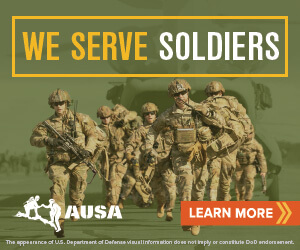Online education is a convenient tool for busy, nontraditional types earning a degree while balancing other responsibilities. Still, virtual learning doesn’t equate to easy. Students choose this route for several reasons — including flexibility — but experts highlight there is a unique obligation that accompanies this type of classroom setting. Before students invest those military education benefits, there are three ways to properly vet an online college.
Dr. Leah Matthews, Executive Director of Distance Education Accrediting Commission (DEAC) — a private, nonprofit organization that operates as a national accreditor of institutions that primarily offer distance education, says it is important that students understand they have significant responsibility for the learning experience when they choose the route of online college.
“Students engage in learning in a digital networked culture that demands participatory learning and authentic engagement. Helping military service members and veterans succeed means, assuring that such students have the attitude and aptitude for distance education,” Matthews said. “To start, potential students should honestly assess their motivation by asking themselves ‘Do I have the self-discipline needed to avoid distractions, stay organized, and complete my assignments when the going gets tough?’”
Because of the commitments associated with serving in the military, such as deployments, online college may be the only feasible way to complete an education. Though, students should be cautious about where they invest those military benefits because all programs do not hold the same value.
With so many options available, how do students choose where to attend?
There are several ways to vet an online college and increase the likelihood of a quality experience. The first, according to Keith Hauk, Associate Vice President for Veterans Initiatives for the University of Maryland University College (UMUC), are a review of the programs and accreditation.
“From my perspective, I’d look at probably two different things … and I put them under the guide of what I call programs. Obviously, the first one is simply academic programs because at the end of the day, when all is said and done, you go to an institution of higher learning to get a degree,” he said. “When they look at the rubric of programs, is the school regionally-accredited or nationally accredited? Is it a public state university, is it a for-profit, private, and everywhere in between? And, what’s the quality of the programs.”
Hauk, who retired after a long career in the Army, references UMUC’s cybersecurity program as an example. He says, although many schools have cybersecurity academic programs, there are factors to differentiate them. For UMUC, it is designation from agencies that matter when it comes to future career goals.
“ … our cybersecurity program, we are a certified center of academic excellence as determined by the National Security Agency and Department of Homeland Security. So, they’ve evaluated all of our cybersecurity programs and they’ve given us that designation,” he explained. “Depending on what it is you’re interested in, in terms of pursuing your degree, look at the overall quality of academic programs at the school, and for the ones your particularly interested in, how do other organizations that actually use those students view those institutions.”
Accreditation is akin to value. In order for that degree program to hold meaning on a resume, it needs proper accreditation ensuring it meets certain standards.
Policies/ Support Staff
Hauk also recommends reviewing what foundational structure is in place for students. He references this as the support side of programs: policies and support staff.
“What are the things that school does to directly assist you as a student?” Hauk said. “Whether you’re uniformed military or a spouse or a dependent child, what are the things that that schools does to assist you in basically navigating your way through the academic environment.”
He added that military-connected students come to higher education with a very unique set of challenges. It is important for them to look at what a school has available through support programs to meet those exceptional needs. Examples are:
- Flexible course scheduling,
- What credit will they give you for your military experience, and
- How many credits do they let you transfer in for your degree.
Transferability
The Department of Defense (DoD) is a proactive partner when it comes to where it permits education benefits to be spent. For example, tuition assistance is available for institutions that meet DOD requirements. Students can perform a quick review of vetted schools on the Servicemembers Opportunity College (SOC) website. The DOD contractor guides schools in creating ‘military friendly’ policies, including ease of transfer.
Many institutions in SOC’s degree network system “have two-way guaranteed transferability”. This means it’s easier for service members to complete associate and bachelor’s degrees regardless of where the military sends them. A list of member schools can be found at SOC network.
For any student, attending online college while working, the responsibility is great. Wasting precious resources — time and money — on the wrong program creates financial burdens that hinder success. But, a concerted effort exists to prevent these mistakes by arming military-connected students with vetting tools. As with any commitment, early research maximizes the likelihood that a student can succeed in online education.
Tools for Checking Accreditation of an Online College
National Center for Education Statistics’ College Navigator
Council of Higher Education Accreditation (regional accrediting agency)
Distance Education Accrediting Commission
Read comments


































